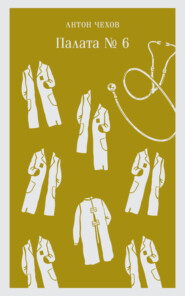По всем вопросам обращайтесь на: info@litportal.ru
(©) 2003-2024.
✖
The Darling and Other Stories
Настройки чтения
Размер шрифта
Высота строк
Поля
I loved Genya. I must have loved her because she met me when I came and saw me off when I went away; because she looked at me tenderly and enthusiastically. How touchingly beautiful were her pale face, slender neck, slender arms, her weakness, her idleness, her reading. And intelligence? I suspected in her intelligence above the average. I was fascinated by the breadth of her views, perhaps because they were different from those of the stern, handsome Lida, who disliked me. Genya liked me, because I was an artist. I had conquered her heart by my talent, and had a passionate desire to paint for her sake alone; and I dreamed of her as of my little queen who with me would possess those trees, those fields, the mists, the dawn, the exquisite and beautiful scenery in the midst of which I had felt myself hopelessly solitary and useless.
"Stay another minute," I begged her. "I beseech you."
I took off my overcoat and put it over her chilly shoulders; afraid of looking ugly and absurd in a man's overcoat, she laughed, threw it off, and at that instant I put my arms round her and covered her face, shoulders, and hands with kisses.
"Till to-morrow," she whispered, and softly, as though afraid of breaking upon the silence of the night, she embraced me. "We have no secrets from one another. I must tell my mother and my sister at once… It's so dreadful! Mother is all right; mother likes you-but Lida!"
She ran to the gates.
"Good-bye!" she called.
And then for two minutes I heard her running. I did not want to go home, and I had nothing to go for. I stood still for a little time hesitating, and made my way slowly back, to look once more at the house in which she lived, the sweet, simple old house, which seemed to be watching me from the windows of its upper storey, and understanding all about it. I walked by the terrace, sat on the seat by the tennis ground, in the dark under the old elm-tree, and looked from there at the house. In the windows of the top storey where Misuce slept there appeared a bright light, which changed to a soft green-they had covered the lamp with the shade. Shadows began to move… I was full of tenderness, peace, and satisfaction with myself-satisfaction at having been able to be carried away by my feelings and having fallen in love, and at the same time I felt uncomfortable at the thought that only a few steps away from me, in one of the rooms of that house there was Lida, who disliked and perhaps hated me. I went on sitting there wondering whether Genya would come out; I listened and fancied I heard voices talking upstairs.
About an hour passed. The green light went out, and the shadows were no longer visible. The moon was standing high above the house, and lighting up the sleeping garden and the paths; the dahlias and the roses in front of the house could be seen distinctly, and looked all the same colour. It began to grow very cold. I went out of the garden, picked up my coat on the road, and slowly sauntered home.
When next day after dinner I went to the Voltchaninovs, the glass door into the garden was wide open. I sat down on the terrace, expecting Genya every minute, to appear from behind the flower-beds on the lawn, or from one of the avenues, or that I should hear her voice from the house. Then I walked into the drawing-room, the dining-room. There was not a soul to be seen. From the dining-room I walked along the long corridor to the hall and back. In this corridor there were several doors, and through one of them I heard the voice of Lida:
"'God.. sent.. a crow,'" she said in a loud, emphatic voice, probably dictating-"'God sent a crow a piece of cheese.. A crow.. a piece of cheese.'.. Who's there?" she called suddenly, hearing my steps.
"It's I."
"Ah! Excuse me, I cannot come out to you this minute; I'm giving Dasha her lesson."
"Is Ekaterina Pavlovna in the garden?"
"No, she went away with my sister this morning to our aunt in the province of Penza. And in the winter they will probably go abroad," she added after a pause. "'God sent.. the crow.. a piece.. of cheese.'.. Have you written it?"
I went into the hall, and stared vacantly at the pond and the village, and the sound reached me of "A piece of cheese… God sent the crow a piece of cheese."
And I went back by the way I had come here for the first time- first from the yard into the garden past the house, then into the avenue of lime-trees… At this point I was overtaken by a small boy who gave me a note:
"I told my sister everything and she insists on my parting from you," I read. "I could not wound her by disobeying. God will give you happiness. Forgive me. If only you knew how bitterly my mother and I are crying!"
Then there was the dark fir avenue, the broken-down fence… On the field where then the rye was in flower and the corncrakes were calling, now there were cows and hobbled horses. On the slope there were bright green patches of winter corn. A sober workaday feeling came over me and I felt ashamed of all I had said at the Voltchaninovs', and felt bored with life as I had been before. When I got home, I packed and set off that evening for Petersburg.
-
I never saw the Voltchaninovs again. Not long ago, on my way to the Crimea, I met Byelokurov in the train. As before, he was wearing a jerkin and an embroidered shirt, and when I asked how he was, he replied that, God be praised, he was well. We began talking. He had sold his old estate and bought another smaller one, in the name of Liubov Ivanovna. He could tell me little about the Voltchaninovs. Lida, he said, was still living in Shelkovka and teaching in the school; she had by degrees succeeded in gathering round her a circle of people sympathetic to her who made a strong party, and at the last election had turned out Balagin, who had till then had the whole district under his thumb. About Genya he only told me that she did not live at home, and that he did not know where she was.
I am beginning to forget the old house, and only sometimes when I am painting or reading I suddenly, apropos of nothing, remember the green light in the window, the sound of my footsteps as I walked home through the fields in the night, with my heart full of love, rubbing my hands in the cold. And still more rarely, at moments when I am sad and depressed by loneliness, I have dim memories, and little by little I begin to feel that she is thinking of me, too – that she is waiting for me, and that we shall meet..
Misuce, where are you?
THREE YEARS
I
IT was dark, and already lights had begun to gleam here and there in the houses, and a pale moon was rising behind the barracks at the end of the street. Laptev was sitting on a bench by the gate waiting for the end of the evening service at the Church of St. Peter and St. Paul. He was reckoning that Yulia Sergeyevna would pass by on her way from the service, and then he would speak to her, and perhaps spend the whole evening with her.
He had been sitting there for an hour and a half already, and all that time his imagination had been busy picturing his Moscow rooms, his Moscow friends, his man Pyotr, and his writing-table. He gazed half wonderingly at the dark, motionless trees, and it seemed strange to him that he was living now, not in his summer villa at Sokolniki, but in a provincial town in a house by which a great herd of cattle was driven every morning and evening, accompanied by terrible clouds of dust and the blowing of a horn. He thought of long conversations in which he had taken part quite lately in Moscow-conversations in which it had been maintained that one could live without love, that passionate love was an obsession, that finally there is no such love, but only a physical attraction between the sexes-and so on, in the same style; he remembered them and thought mournfully that if he were asked now what love was, he could not have found an answer.
The service was over, the people began to appear. Laptev strained his eyes gazing at the dark figures. The bishop had been driven by in his carriage, the bells had stopped ringing, and the red and green lights in the belfry were one after another extinguished- there had been an illumination, as it was dedication day-but the people were still coming out, lingering, talking, and standing under the windows. But at last Laptev heard a familiar voice, his heart began beating violently, and he was overcome with despair on seeing that Yulia Sergeyevna was not alone, but walking with two ladies.
"It's awful, awful!" he whispered, feeling jealous. "It's awful!"
At the corner of the lane, she stopped to say good-bye to the ladies, and while doing so glanced at Laptev.
"I was coming to see you," he said. "I'm coming for a chat with your father. Is he at home?"
"Most likely," she answered. "It's early for him to have gone to the club."
There were gardens all along the lane, and a row of lime-trees growing by the fence cast a broad patch of shadow in the moonlight, so that the gate and the fences were completely plunged in darkness on one side, from which came the sounds of women whispering, smothered laughter, and someone playing softly on a balalaika. There was a fragrance of lime-flowers and of hay. This fragrance and the murmur of the unseen whispers worked upon Laptev. He was all at once overwhelmed with a passionate longing to throw his arms round his companion, to shower kisses on her face, her hands, her shoulders, to burst into sobs, to fall at her feet and to tell her how long he had been waiting for her. A faint scarcely perceptible scent of incense hung about her; and that scent reminded him of the time when he, too, believed in God and used to go to evening service, and when he used to dream so much of pure romantic love. And it seemed to him that, because this girl did not love him, all possibility of the happiness he had dreamed of then was lost to him forever.
She began speaking sympathetically of the illness of his sister, Nina Fyodorovna. Two months before his sister had undergone an operation for cancer, and now every one was expecting a return of the disease.
"I went to see her this morning," said Yulia Sergeyevna, "and it seemed to me that during the last week she has, not exactly grown thin, but has, as it were, faded."
"Yes, yes," Laptev agreed. "There's no return of the symptoms, but every day I notice she grows weaker and weaker, and is wasting before my eyes. I don't understand what's the matter with her."
"Oh dear! And how strong she used to be, plump and rosy!" said Yulia Sergeyevna after a moment's silence. "Every one here used to call her the Moscow lady. How she used to laugh! On holidays she used to dress up like a peasant girl, and it suited her so well."
Doctor Sergey Borisovitch was at home; he was a stout, red-faced man, wearing a long coat that reached below his knees, and looking as though he had short legs. He was pacing up and down his study, with his hands in his pockets, and humming to himself in an undertone, "Ru-ru-ru-ru." His grey whiskers looked unkempt, and his hair was unbrushed, as though he had just got out of bed. And his study with pillows on the sofa, with stacks of papers in the corners, and with a dirty invalid poodle lying under the table, produced the same impression of unkemptness and untidiness as himself.
"M. Laptev wants to see you," his daughter said to him, going into his study.
"Ru-ru-ru-ru," he hummed louder than ever, and turning into the drawing-room, gave his hand to Laptev, and asked: "What good news have you to tell me?"
It was dark in the drawing-room. Laptev, still standing with his hat in his hand, began apologising for disturbing him; he asked what was to be done to make his sister sleep at night, and why she was growing so thin; and he was embarrassed by the thought that he had asked those very questions at his visit that morning.
"Tell me," he said, "wouldn't it be as well to send for some specialist on internal diseases from Moscow? What do you think of it?"
The doctor sighed, shrugged his shoulders, and made a vague gesture with his hands.
It was evident that he was offended. He was a very huffy man, prone to take offence, and always ready to suspect that people did not believe in him, that he was not recognised or properly respected, that his patients exploited him, and that his colleagues showed him ill-will. He was always jeering at himself, saying that fools like him were only made for the public to ride rough-shod over them.
Yulia Sergeyevna lighted the lamp. She was tired out with the service, and that was evident from her pale, exhausted face, and her weary step. She wanted to rest. She sat down on the sofa, put her hands on her lap, and sank into thought. Laptev knew that he was ugly, and now he felt as though he were conscious of his ugliness all over his body. He was short, thin, with ruddy cheeks, and his hair had grown so thin that his head felt cold. In his expression there was none of that refined simplicity which makes even rough, ugly faces attractive; in the society of women, he was awkward, over-talkative, affected. And now he almost despised himself for it. He must talk that Yulia Sergeyevna might not be bored in his company. But what about? About his sister's illness again?
And he began to talk about medicine, saying what is usually said. He approved of hygiene, and said that he had long ago wanted to found a night-refuge in Moscow-in fact, he had already calculated the cost of it. According to his plan the workmen who came in the evening to the night-refuge were to receive a supper of hot cabbage soup with bread, a warm, dry bed with a rug, and a place for drying their clothes and their boots.
Yulia Sergeyevna was usually silent in his presence, and in a strange way, perhaps by the instinct of a lover, he divined her thoughts and intentions. And now, from the fact that after the evening service she had not gone to her room to change her dress and drink tea, he deduced that she was going to pay some visit elsewhere.
"But I'm in no hurry with the night-refuge," he went on, speaking with vexation and irritability, and addressing the doctor, who looked at him, as it were, blankly and in perplexity, evidently unable to understand what induced him to raise the question of medicine and hygiene. "And most likely it will be a long time, too, before I make use of our estimate. I fear our night-shelter will fall into the hands of our pious humbugs and philanthropic ladies, who always ruin any undertaking."
Yulia Sergeyevna got up and held out her hand to Laptev.
"Excuse me," she said, "it's time for me to go. Please give my love to your sister."
"Ru-ru-ru-ru," hummed the doctor. "Ru-ru-ru-ru."

















